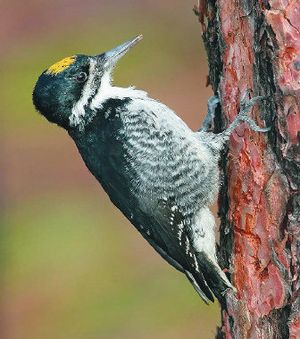Going wild: A chat with biologists is never dull
WILDLIFE WATCHING -- I had a chance to soak in some of the conversation recently when a handful of wildlife biologists gathered around a picnic table for dinner at the Little Pend Oreille National Wildlife Refuge.
And I was all ears.
The "bat lady" told of how she was installing new equipment to monitor bat sounds at night and help determine what species are flying around parts of the refuge in the night.
Bird talk dominated the session.
Did you know that mountain quail stand out among western birds because the female lays eggs in two nests? The male incubates one nest of eggs while the female incubates the other. If they're both successful, they bring their broods together.
Most of the woodpeckers, however, share the job of incubation. The female deposits the eggs in the nest and she and the male trade off shifts every eight hours or so.
Across the bird world, males are more likely to assume the job of incubating the eggs, as in penguins.

